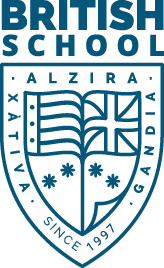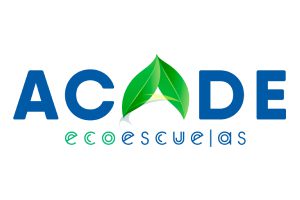In the British Schools of Alzira, Xàtiva and Gandia we never stop innovating in educational forms, for this reason we have implemented a new system in infants that we have called “Neuroscience and Education”.
After many years of research in Spain and abroad, the British School Alzira-Xàtiva-Gandia Group has developed a unique educational project for Early Years based on Educational Neuroscience, and has materialized in spaces that are unique and are designed and organised with a multitude of resources, where each corner has its purpose and mission, with the aim of move the student, stimulating their learning process through experimentation and all under a total linguistic immersion.
The British Schools of BSA, BSX and BSG are pioneers in neuroscience in Spain, betting on education from the youngest, from 0 to 5 years old, in neuronal matters.
The brain must be stimulated and must be trained from childhood.
Neuroscience and Education: Connecting the First Neurons
Early childhood is a fundamental stage in the process of development and formation of personality, due to the great plasticity and ability to create neural connections in the brain at this age.
The brain needs emotions to learn. Educating means moving and promoting development and learning.
How can you educate with emotions? Through the creation of positive environments, through illusion, through surprise, promoting creativity, imagination… Knowing the influence that emotional states have, we can manage them to generate the conditions that encourage learning and the development of our youngest children.
I learn by doing – Early Years Education in England: Early Years Foundation Stage
The pedagogical approach of our schools at this age is based on the “Learning by doing” philosophy, the basis of the British Curriculum. This educational function revolves around the formation of habits of personal autonomy and discovery learning.
Children learn at their own pace, which makes them more autonomous and with stronger self-esteem. Learning by playing they are not forced to do anything they do not like, and instead, they enjoy what they do at all times, they feel motivated and curious, being the protagonists of their own teaching-learning process.
Why are we defenders of this project and pioneers in implementing it?
Through the senses and by exploring the environment, the children can build their learning and are able to understand the world around them.
For this reason, teachers must encourage the sensory development of children in Early Years Education, helping them to interact with the environment, thus benefiting their language, socialisation and cognitive development.
Our main objective is to offer our students a quality education to successfully face their future learning, both in cognitive or knowledge matters, and emotional.
To do this, we work on feelings, perception and the sensory, creating a motivating atmosphere in which the child enjoys the freedom to explore, discover and enjoy the various sensory experiences.
We continuously stimulate, motivate and propose new challenges in a way that maintains curiosity, interest, motivation and amazement, which is the engine of our learning.
Neuroscience and Education: At the forefront of the development of new spaces
In order to implement this philosophy based on neuroeducation, it is necessary to have spaces that allow children from 0 to 5 years of age the opportunity to experience, feel and develop their level of sensory exploration.
Students have radically changed in relation to those of a generation ago. Globalisation and the impact of new technologies, as well as numerous studies and research from the field of neuroscience, make their way of having to provide them with materials and spaces that allow a methodological change, so that our little ones are an active element in the learning process developed through the different areas available to the EYFS area:
Multisensory Area

In a multisensory environment, a safe and motivating environment with elements such as music, colourful lights, projectors, fiber optics, light tables, aromas, textures, environmental education, etc… our little ones explore, discover and enjoy the senses.
Thanks to the senses and exploring the environment through movement (action and experimentation), the process of assimilation and accommodation takes place and allows the construction of learning and understanding of the world around us. The richness of sensory stimuli benefits the development of thought, intelligence and language.
Psychomotricity Area

The fundamental pillar of our educational project lies in promoting motor play, essential in child development, since through it children begin to relate to the environment, to interact with their classmates and the different objects, to develop affectively and to better know autonomy.
Assemblies Area

Area with an amphitheater to scale, with a work exhibition area and a large interactive screen, where we share learning and encourage cooperative work through weekly Assemblies.
This area also has a Reading Corner equipped with an extensive catalog of books, bringing children closer to the foundations of English Literature. It has been studied down to the last detail so that reading becomes an experience.
Role Playing Area
Only by creating a motivating and experiential environment we will lead to the object of interest and learning.
The Role Playing (Symbolic Game) and the Theatre show us the degree of understanding that the child acquires by the actions of the adult and his world.
The body-mind stimulation that is generated reinforces sensitivity, expression, coordination, personal safety, empathy… which creates the need to verbalize and develop language to relate to others and express needs.
Outdoor Area – Fresh Air

Areas studied and built with a multitude of elements elaborated expressly to promote the development of different skills, creating differentiated corners <<orchards, tipis, gross motor skills area, both to interact with the environment that surrounds us, as well as to encounter experiential activities and experimental routines>>, allowing to continue working from all areas of physical and emotional development of children in a transversal and interdisciplinary manner.
Specialised Monitoring of Neuroscience and Education (Psychopedagogical Department)
From the Psychopedagogical Department we prepare the programs in an eminently practical way and with a preventive and indicative nature.
Mainly including plans to help children reach their optimal degree of maturity and development in all areas, always favouring the maximum use of the potential they possess at a cognitive, motor, verbal level… we try to prevent and avoid the appearance of secondary problems in physical, affective or cognitive development, providing them with the basic skills that are essential for future learning, and facilitating and favoring the development of habits of personal autonomy and social relationships with the environment, and at the same time, guiding parents.
We help them understand the characteristics of their children, involving them in their education and rehabilitation.

Early Years Education is the basis of the educational system, it is the stage in which the foundations are laid on which future learning will be sustained, and for these reasons, the most important.
Through the project of the British School Alzira, Xàtiva and Gandia, we develop the most rewarding of professions with enthusiasm and passion: EDUCATE.
Find out more about Neuroscience and Education on the “Sociedad TV” website, where our Director, Franc Corbí, talks about this pioneering method.





























